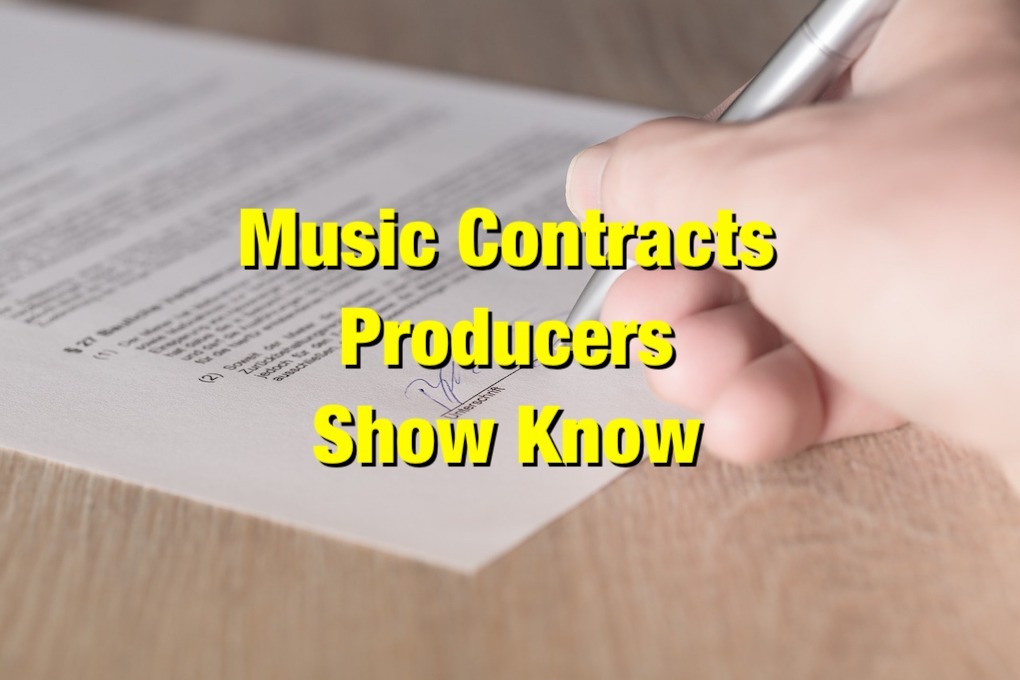- in Production by Bobby Owsinski
Music Contracts Producers Should Know

Many musicians and artists believe that music production is just acting like a director of a movie in order to achieve a great recording, but it’s so much more than that. Music producers have a complex job where they have to be part politician, diplomat, casting director, creative director, financier and product manager. That’s a lot of jobs, which means that it requires familiarity with commonly used music contracts. Here are just a few that a producer will likely to run into.
Recording Service Agreement
This may be the most important in that it outlines how and when a producer gets paid. Whether being hired by an artist or label, you want to outline things like advances, royalties on physical products, and royalties on streaming. Not only that, you need to specify when and how you get paid and who’s going to pay you, and how your credits will read, among other things.
Session Musician Contract
While it’s easy to just bring in a musician and slip him or her some cash and call it a day, that can open you up to litigation if a song on the project becomes a hit. That’s why a contract that specifies that the session is a work for hire, as well as stipulating the exact songs, fee paid, and credit information is always good protection.
Sample Clearance Agreement
Producers of electronic music who specialize in creating beats have to be especially sensitive to sample clearance, as it can cost them most of their royalties down the road if they neglect to clear it and the song becomes a hit. This actually requires 2 separate contracts – one for the owner of the recording, usually the label; and one for the publisher of the song. In it you’ll find the consent to use the sample, how the sample will be used, what the fee is, and how the song will be credited, among many other items. This is absolutely essential to anyone basing their work upon samples.
While there are other music contracts that might come into play like non-disclosure agreements, copyright claims and cease and desist, those are used much less than the agreements outlined above.
Remember that it’s best to get advice from a real music attorney before entering into any agreement. That said, there are numerous places around the web where you can download music contract templates if money is tight.
You can read more from The Music Producer’s Handbook and my other books on the excerpt section of bobbyowsinski.com.
